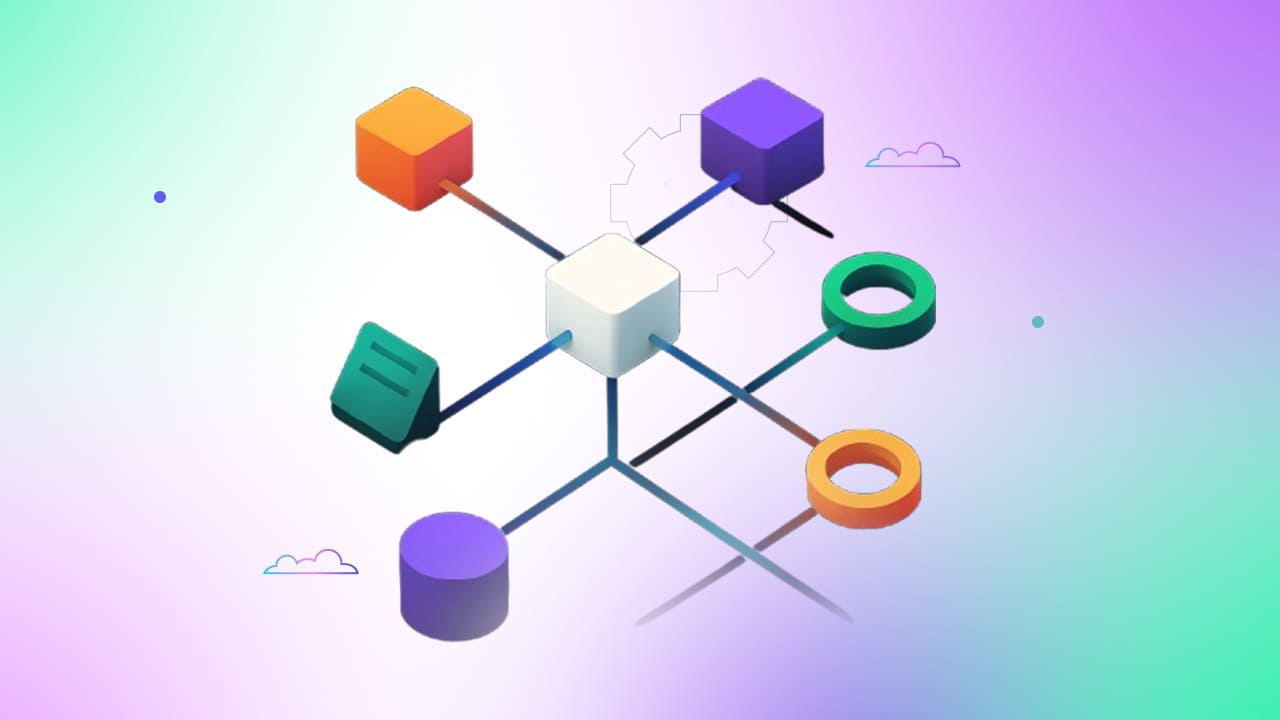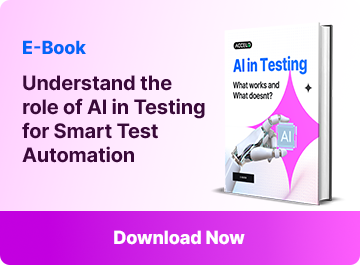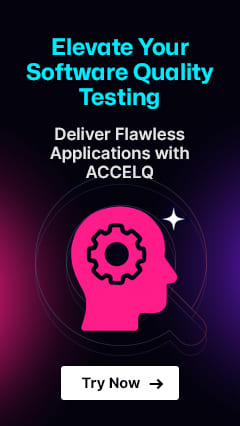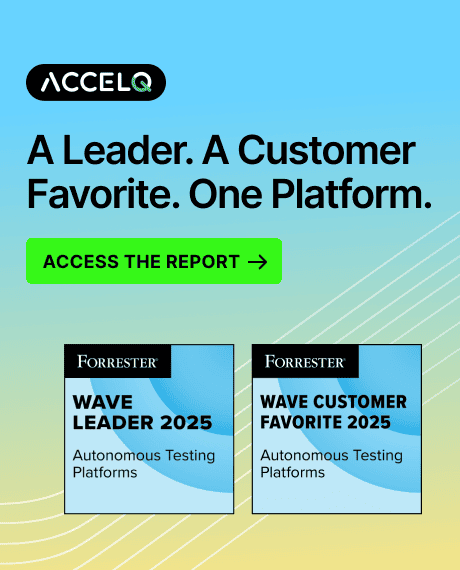AI Agent for Defect Prediction: Is Your QA Strategy Future-Ready?

In the modern software development arena, delivering top-quality apps isn’t optional; it is vital. Outdated quality assurance (QA) practices, although effective, sometimes struggle to keep pace with the increasing complexity and intricacy of advanced development cycles. That’s where AI defect prediction is changing the future of QA and software testing. By implementing machine learning algorithms and leveraging past defect data, AI-centric systems can identify critical areas in the code before they become expensive bugs.
AI defect prediction in software testing not only improves reliability but also empowers software testing teams to optimize resource distribution, focus on the most critical components, and expedite release cycles. As companies gradually accept DevOps and agile approaches, predictive AI agents are becoming a keystone of proactive QA strategies, guaranteeing that quality is built into the product from the outset.
- What is AI defect prediction in software testing and how does it work?
- Key Benefits of AI-Powered Defect Prediction
- AI Agent Workflow in a DevOps Pipeline
- AI agent vs machine-learning model for defect prediction
- AI-Powered Defect Prediction with ACCELQ
- Best Practices for Implementing AI Agents in QA
- Conclusion
What is AI Defect Prediction in Software Testing and How Does It Work?
AI defect prediction in the software testing process is the practice of advanced data-driven techniques and algorithms to forecast flaws before they appear in production. Instead of relying solely on manual testing or reactive error identification, it utilizes intelligent models to analyze code metrics, historical data, and patterns of prior issues. Early detection of high-risk software elements is intended to support QA teams in strategically focusing their testing efforts.
Software defect prediction models, trained on an extensive suite of inputs including change history, code complexity, and developer activity, form the foundation of this methodology. Such models learn from earlier defect data to categorize modules as “safe” or “defect-prone,” enabling QA engineers to prioritize where deeper authentication is required.
Key Benefits of AI-Powered Defect Prediction
Accepting AI-centric methods in QA delivers significant benefits that go beyond old testing approaches. By including AI QA tools for defect prediction, companies can change how they detect, order, and mitigate defects throughout the SDLC. Some of the core advantages comprise:
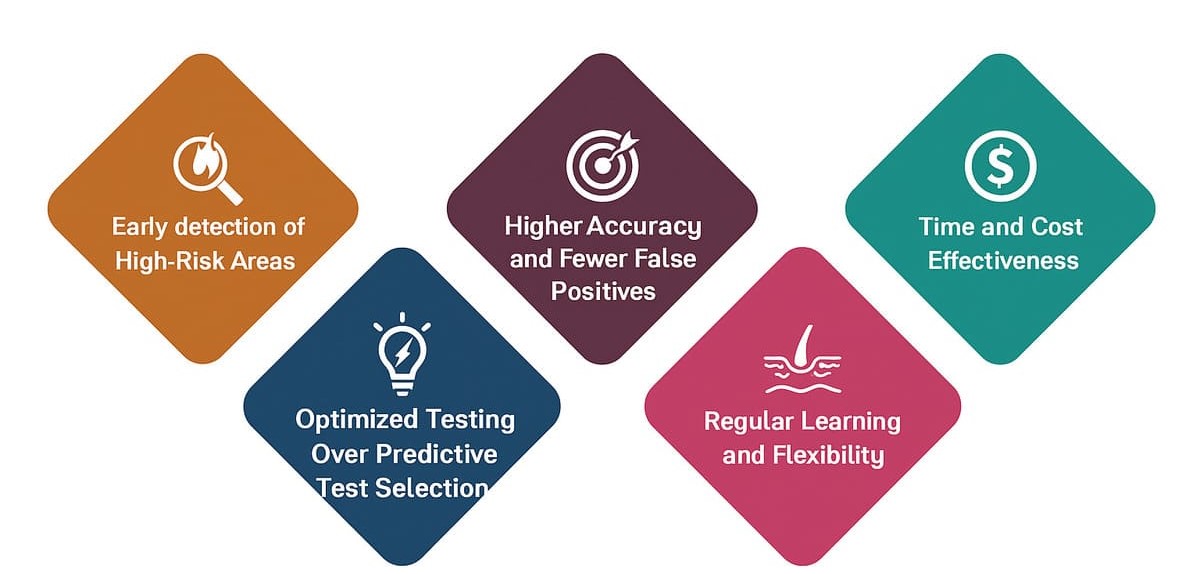
1. Early detection of High-Risk Areas
AI-based models can scrutinize past errors and code metrics to identify modules likely to comprise issues. This supports Quality Assurance (QA) teams’ focus test efforts where they matter most, decreasing the threat of expensive production failures.
2. Optimized Testing Over Predictive Test Selection
Rather than testing each module equally, Artificial Intelligence (AI) allows predictive test selection, confirming that the high-impact and most relevant tests are performed first. This not only expedites test cycles but also increases test coverage with fewer resources.
3. Higher Accuracy and Fewer False Positives
Old methods or techniques can often create an immense number of risks, many of which might not be significant. Systems assisted by AI in testing are constantly learning from real-time outputs, enhancing predictions to decrease false alarms and boost reliability.
4. Regular Learning and Flexibility
Unlike static rule-centric systems, AI-based QA tools progress with the project. They learn from every release cycle, adjusting to changing development situations, coding approaches, and business necessities.
5. Time and Cost Effectiveness
By forecasting defects before they occur, companies save valuable time spent on late-phase error fixing and revision. This lowers overall testing charges while expediting launch timelines.
AI Agent Workflow in a DevOps Pipeline
The AI agent in software testing utilizes predictive test selection and AI defect prediction within a DevOps pipeline to organize systems and enhance software accuracy.
Typical workflow of an AI agent in a DevOps pipeline comprises:
- Data Collection & Analysis: The AI agent collects data from version control systems, historical test outcomes, defect logs, and code modifications. This creates the basis for training predictive models.
- Defect Risk Evaluation: Through AI defect prediction in a DevOps pipeline, the agent pulls requests or assesses new code commits, highlighting high-risk zones and predicting potential flaws before merging.
- Predictive Test Selection: Rather than running the complete test suite, the Artificial Intelligence (AI) agent applies predictive test selection to implement only the relevant test cases for the detected risk areas. This minimizes the time for the test cycle while maintaining coverage.
- Continuous Feedback Loop: As new defects are discovered and fixed, the AI agent constantly retrains its models. This guarantees that forecasts remain accurate and aligned with developing codebases.
- Automated Decision-Making: The AI agent can provide actionable insights, such as blocking a release if the risk is huge, or green-lighting a deployment if the likelihood of a flaw is low, thereby assisting QA teams in managing speed without compromising quality.
AI agent vs machine-learning model for defect prediction, which should QA teams use?
When it comes to advanced QA strategies, the debate of AI agent vs machine-learning model for defect prediction often comes up.
ML-based Models for Software Defect Forecast
Outdated software defect prediction models are built using ML-based algorithms trained on historical errors and code data. Such models excel at forecasting defect-prone sections but are typically narrow in scope, focusing solely on statistical accuracy and pattern recognition. They give valuable insights; however, they often demand manual integration into QA systems.
AI Agents for Error Estimation
An AI agent, on the flip side, is more than merely a predictive model. It acts as an autonomous decision-making structure embedded within the DevOps pipeline. Beyond forecasting, it conducts work such as automated risk evaluation, predictive test selection, constant retraining, and even release decision support. This makes AI agents extremely adaptive and context-aware
Which Should QA Teams Use?
- If the goal is E2E automation, proactive defect management, and continuous learning within a DevOps environment, an AI agent is the perfect choice.
- If a team’s objective is to gain insights from past defect patterns and add standalone machine-learning models and manual testing strategies for software error prediction, it might be enough.
AI-Powered Defect Prediction with ACCELQ
Instead of depending on several tools, QA teams can embrace ACCELQ’s Predictive Defect Analytics to optimize the test process. ACCELQ makes use of AI-driven insights and change impact analysis to automatically detect high-risk areas in growing Salesforce apps. This aids QA teams:
- Predict Defects Early: By scrutinizing code and configuration, as well as process changes, ACCELQ predicts where errors are most likely to occur.
- Prioritize Test Implementation: Test cases are ranked automatically so QA experts focus on situations with the highest quality and business risk.
- Optimize Regression Testing: Instead of executing each test, ACCELQ highlights only the ones affected by current modifications, decreasing test cycle times.
- Regular DevOps Integration: With smooth CI/CD incorporation, predictive analytics flow straight into the delivery pipeline, confirming each release is authorized with precision.
With AI-centric defect prediction, ACCELQ guarantes QA strategies aren’t just current but future-ready. By moving to proactive risk management from reactive bug fixing, businesses can release apps with greater confidence, speed, and resilience.
🚀Agentic Automation That Learns and Innovates
Redefine Your Testing Game with AUTOPILOT
Step into the future
Best Practices for Implementing AI Agents in QA
To successfully implement Artificial Intelligence (AI) in QA, companies must follow a suite of practical best practices:
- Begin with Quality Data: Train software defect prediction models through reliable past defect and test data to guarantee accurate insights.
- Implement Incremental Implementation: Start with small projects like risk analysis or regression testing before scaling AI-based agents across the entire pipeline.
- Leverage Error Estimation Using Artificial Intelligence: Utilize predictive insights to prioritize high-risk modules and reorganize test implementation, decreasing wasted effort.
- Embed with DevOps Workflows: Directly include AI agents in CI/CD workflows to enable continuous improvement and real-time response.
- Manage Human Oversight: Balance automation with expert authentication, guaranteeing predictions are aligned and actionable with business priorities.
Conclusion
As software delivery cycles accelerate, outdated QA approaches alone are no longer sufficient to ensure quality at speed. AI QA technologies for defect prediction are revolutionizing testing in the future because of this. Advanced defect prediction tools, ranging from ML-based models to smart AI agents, allow QA teams to move from reactive error identification to proactive QA. Among these, platforms such as ACCELQ, a codeless test automation tool, stand out by blending predictive intelligence with end-to-end (E2E) automation testing, flawlessly integrated into DevOps workflows.
The journey to smart QA begins with implementing the right practices and tools. To discover how AI-driven automation can fast-track your testing strategy, browse ACCELQ CONTACT US and discover how to future-proof your software quality with predictive QA.
Geosley Andrades
Director, Product Evangelist at ACCELQ
Geosley is a Test Automation Evangelist and Community builder at ACCELQ. Being passionate about continuous learning, Geosley helps ACCELQ with innovative solutions to transform test automation to be simpler, more reliable, and sustainable for the real world.
You Might Also Like:
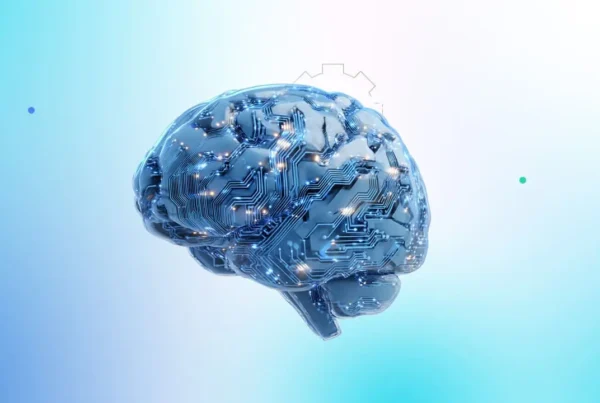 Testing in MLOps – Keeping Machine Learning Honest
Testing in MLOps – Keeping Machine Learning Honest
Testing in MLOps – Keeping Machine Learning Honest
 AI-Prioritized Regression Testing: Smarter Coverage, Faster Delivery
AI-Prioritized Regression Testing: Smarter Coverage, Faster Delivery
AI-Prioritized Regression Testing: Smarter Coverage, Faster Delivery
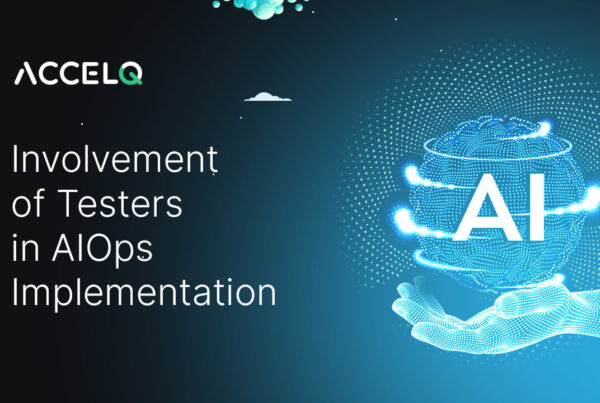 AIOps for Test Automation: The Shift Modern QA Teams Need
AIOps for Test Automation: The Shift Modern QA Teams Need






























